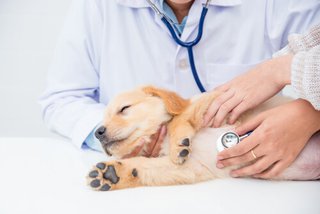Emergency first aid tips

In an emergency, stay calm, use common sense, and quickly get your dog to the vet. Call first If your doctor's office is not open, call the nearest emergency pet clinic. Keep emergency phone numbers close to your phone. It is important that the owner obtain as much information about the accident as possible to guide what future procedures the vet should follow. This information can include how the dog was injured and how long ago it happened, and whether the poisoning is likely, the type and amount of poison ingested. Unless you have been trained and are absolutely certain that you can administer CPR to your dog, it is better, and safer, to seek immediate veterinary attention. However, there are a few things you can do to help your dog before taking him to the hospital / clinic as soon as possible:
• Wrap your dog in a thick towel or blanket to keep him warm and restrict his movements. Having assistance would be helpful
• Apply a pressure bandage (sterile gauze or a clean tissue) to stop or bleed a cut or bite. If the bleeding area is a limb, try elevating it
• Apply a cold compress to a burn and gently hold it there until you reach the veterinary clinic.
• Do not induce vomiting if you suspect or know that your dog has swallowed a poisonous substance.
• At any sign of suffocation (drooling, difficulty swallowing, scratches in the mouth, nausea), do not try to remove the object
• If your dog suffers from heat stroke, take it to a cool place and sponge it with cold water. Encourage your dog to drink small amounts of water
• If your dog suffers frostbite, place him in a warm room right away. Defrost frozen areas slowly by applying warm, damp towels that are changed frequently until the area is rinsed. Severe frostbite can cause damage to the paws and tips of the ears, so it's best to let your vet determine the extent of the damage as soon as possible.